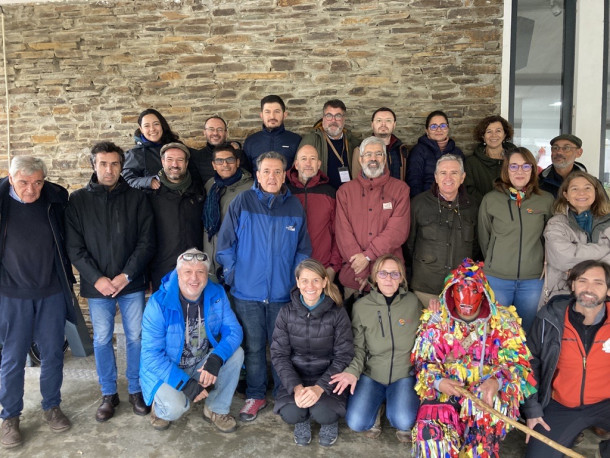News
Iberian transboundary biosphere reserves get together to find potential solutions to challenges of shared management

The event brought together 18 experts, including the managers of the three transboundary biosphere reserves between Portugal and Spain, namely Gerês/Xurés, Meseta Ibérica and Tejo/Tajo Internacional, the managers of the Mediterranean Intercontinental Biosphere Reserve between Morocco and Spain, representatives of the National Committees of the UNESCO Man and the Biosphere (MAB) Programme, as well as representatives from Ecuador, Costa Rica and Panama.
Given that ecosystems extend beyond political borders, transboundary biosphere reserves represent an ideal tool for joint site management between two or more countries. The designation of a transboundary biosphere reserve, officially recognised by UNESCO, demonstrates a shared political will to cooperate on the conservation of biodiversity and the sustainable use of natural resources through the joint management of a shared ecosystem. There are currently 738 biosphere reserves in 134 countries, including 22 transboundary biosphere reserves.
The seminar, organised within the framework of the INTERCOONECTA plan of the Spanish Agency for International Development Cooperation (AECID), enabled experts to analyse the governance structures and action plans of these sites, as well as to identify the main challenges for their joint management.
During the seminar participants put forward proposed solutions to these challenges with the aim to improve transboundary management in these areas, including on governance, conservation, participation, financing and shared projects. These proposals were compiled into a guide of good practices, which will serve to advise on the mechanisms of transboundary biosphere reserves and the nomination of new sites with these characteristics.
The compiled proposals and shared experiences also allowed the experts to provide some technical advice on the nomination process for a new transboundary biosphere reserve in the Eastern Tropical Pacific Marine Corridor (CMAR) between Colombia, Costa Rica, Ecuador and Panama.
The seminar was organised by the UNESCO MAB Programme, the European Grouping for Territorial Cooperation (ZASNET), the Instituto da Conservação da Natureza e das Florestas (ICNF) of Portugal, the Autonomous Organisation of National Parks (OAPN) of the Spanish Ministry of Ecological Transition and Demographic Challenge, and the Spanish Agency for International Development Cooperation (AECID).






